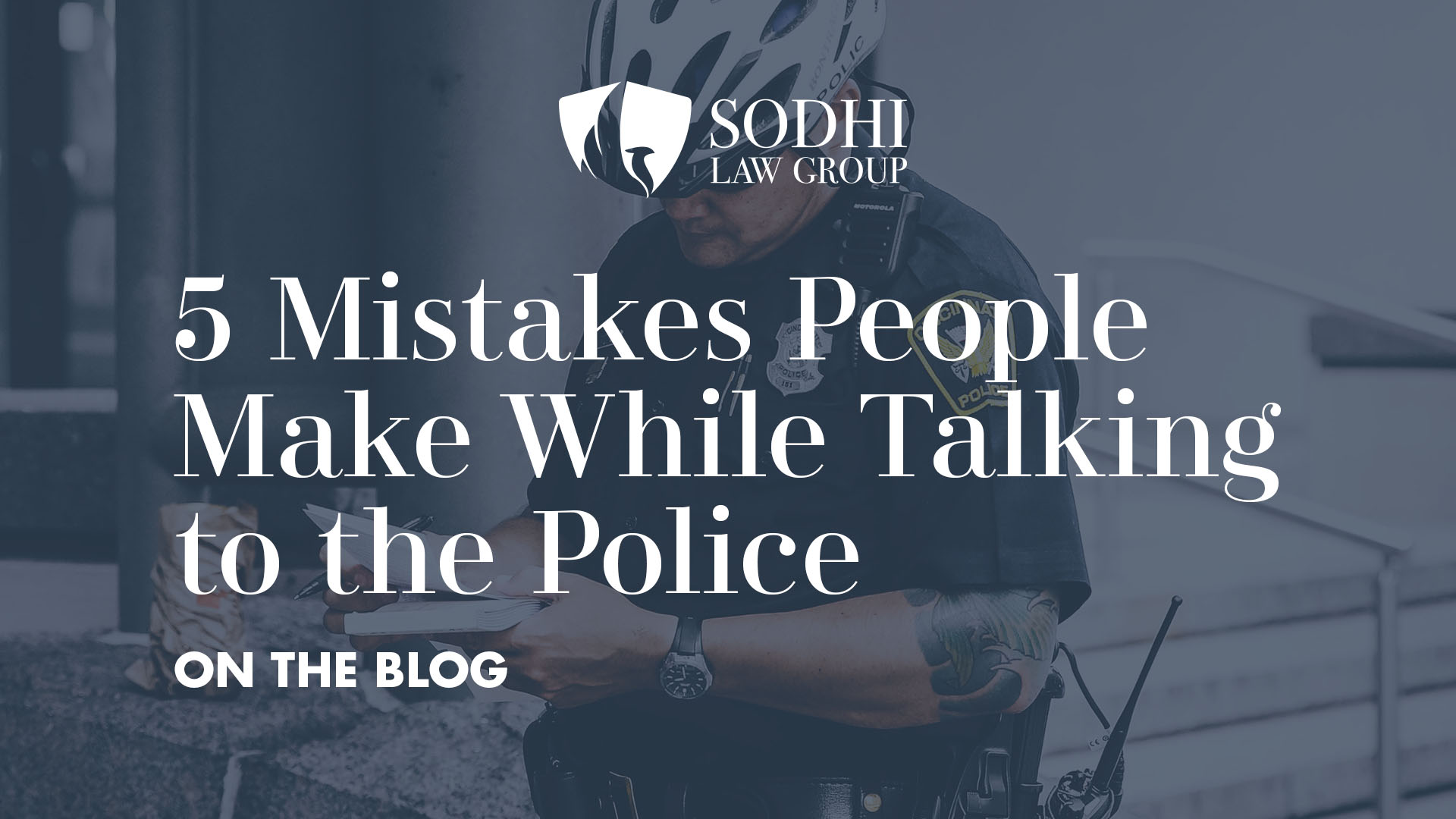Spring is just around the corner! For most people this means vacations, barbecues, and camping trips. For others, however, this means a higher chance of coming in contact with the police. Here are 5 mistakes people make while talking to the police. Don’t be one of them.
1. Talking too much. The best thing to do is to remain silent. I repeat, remain silent! Do not say a word to the officer. Do not talk! You have a constitutional right to remain silent – take advantage of it. As easy as that sounds, too many people forget this simple yet extremely important rule and end up making their situation far worse.
2. Voice their innocence. Too often, people make every effort to voice their innocence to the arresting officer, at booking, or their holding cell cellmates. None of these people need to know nor do any of these people care if you are innocent or not. They cannot help you in any way. The officers are there to do their job, detain you. Your holding cell cellmates are in the same state as you, trying to get out of jail. You will have a chance to do plenty of talking later, with your attorney. Your attorney can help you stay out of jail unless you put your foot in your mouth. So keep your mouth shut.
3. Resist arrest. Resisting arrest comes with an array of definitions and consequences. If you are pulled over or under arrest, I urge you to keep calm. Do not run. Do not drive away. Do not obstruct. Do not delay. Listen to the officer and follow the officer’s instructions. If you do not, you may end up in jail and face additional charges. Actions that may be considered resisting arrest include: jeering at police officers who are attempting to arrest a friend of yours, giving a false name to police officers who are questioning you about a crime, and showing up at the scene of a crime or accident. The penalties for resisting arrest may include up to one (1) year in a county jail and/or a maximum one thousand dollar ($1,000) fine. So, do resist the urge to take any action other than listening and following the officer’s instructions. You will be thankful you did.
4. Being persuaded by friendly police officers. Often, police officers fishing for information will politely make their way into your home, vehicle, or property. Without probable cause and a search warrant, they can’t do this. Remember the 4th Amendment statement which reads: “The right of the people to be secure in their persons, houses, papers and effects, against unreasonable searches and seizures, shall not be violated, and no Warrants shall issue, but upon probable cause, supported by Oath or affirmation, and particularly describing the place to be searched, and the persons or things to be seized.” If the police believe you have committed a felony, they generally do not need an arrest warrant. They can arrest you. But that typically doesn’t include a free for all search of your property. Once you have correctly been identified as the arrestee, step outside, remember the first and second rules mentioned above, and make it clear that you are not letting them inside. You can make it clear by politely stating “No you may not come in”, “I am comfortable talking right here,” or “you need a search warrant to enter my home.”
5. Put up with police misconduct. Police misconduct includes force, arrogance, or verbal abuse. There are strict rules and specific policies an officer must follow while questioning someone or while making an arrest. The details are complex, but the point is that people being questioned by an officer or who are under arrest still have rights. For example, if you don’t want to talk to the police officer and you’re not under arrest you can walk away. An arrest is illegal unless carried out according to strict procedures. Arrests must include a reading of your Miranda Rights. If you feel that a police officer’s actions were abusive, you should speak up. Even if this means reporting a police officer more than once. You can voice your concerns by filing a complaint with the nearest police department or contacting an attorney.
This blog does not create an attorney-client relationship. This blog is legal information and should not be seen as legal advice. You should consult with an attorney before you rely on this information.
Have questions? Contact Sodhi Law Group at https://www.sodhilawgroup.com/ or (209) 900-8200.


